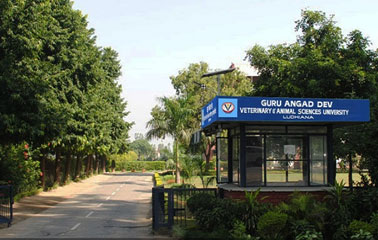
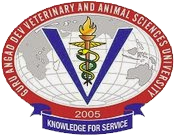
A 5-day international workshop on disease prioritisation and risk analysis concluded today at School of Public Health and Zoonoses,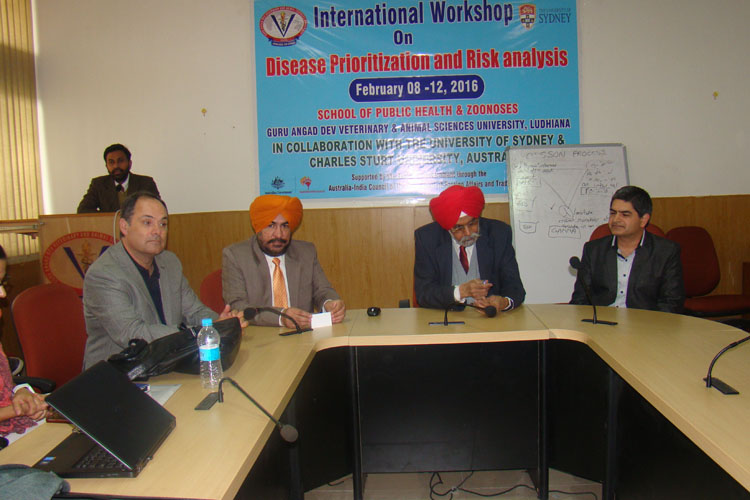 Guru Angad Dev Veterinary and Animal Sciences University (GADVASU) Ludhiana from 8 to 12 February 2016. Dr SNS Randhawa, Director of Research, (GADVASU), Ludhiana congratulated the organisers for this endeavour and hoped that it will help boost research in disease prioritisation and risk analysis at the University.
Guru Angad Dev Veterinary and Animal Sciences University (GADVASU) Ludhiana from 8 to 12 February 2016. Dr SNS Randhawa, Director of Research, (GADVASU), Ludhiana congratulated the organisers for this endeavour and hoped that it will help boost research in disease prioritisation and risk analysis at the University.
Dr JPS Gill, Director, School of Public Health and Zoonoses and Organising Secretary of the workshop informed that during the workshop four experts from Australia trained 25 workshop participants in approaches for disease prioritisation and conducting risk analyses. He said that these approaches will be very beneficial for GADVASU scientists and students and enable Varsity to develop leadership in these techniques in India for improving animal and public health in the country. Dr. Balbir Bagicha Singh, Assistant professor, School of Public Health & Zoonoses, co-ordinated this workshop.
Dr Navneet Dhand, Associate Professor in Veterinary Epidemiology and Principal Investigator of the Project informed that this was the third in a series of four workshops planned after signing of Memorandum of Understanding between GADVASU and The University of Sydney in 2015. The previous workshops were held in April and November 2015. He informed that these workshops 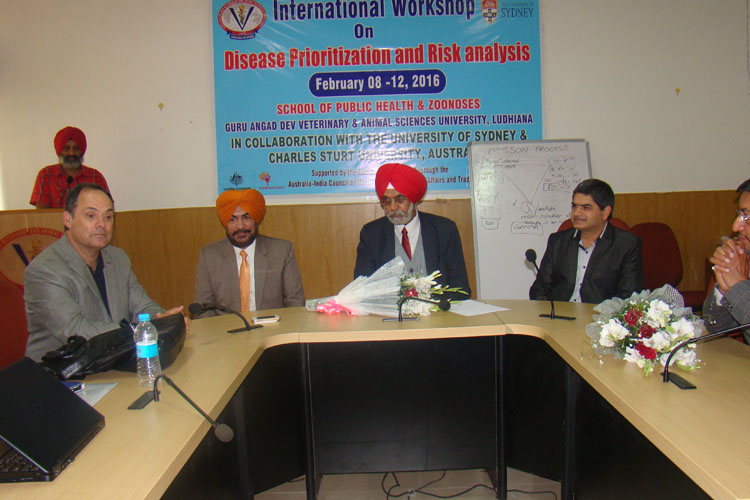 have trained more than 100 GADVASU Faculty and students in cutting edge epidemiological tools and techniques. These trainings will enable GADVASU scientists to develop better animal disease control programs and help improve animal and public health in the state.
have trained more than 100 GADVASU Faculty and students in cutting edge epidemiological tools and techniques. These trainings will enable GADVASU scientists to develop better animal disease control programs and help improve animal and public health in the state.
Professor Michael Ward, Chair Veterinary Public Health and Food Safety from the University of Sydney informed that disease prioritisation techniques are very useful for appropriate allocation of scarce resources. These approaches allow policymakers to combine opinions and perceptions of stakeholders with objective data on diseases for ranking diseases in the order of importance for control and also for further research.
Dr Marta Hernandez-Jover, Senior Lecturer from Charles Sturt University in Wagga Wagga, Australia led the risk analysis component of the workshop. She said that risk analysis is now very commonly used by governments in developed countries in day to day work but its use in developing countries is still limited. She said that this workshop will increase use of risk analysis both in research and in government policy making in India to enable them make science based decisions.
Dr Victoria Brookes, Postdoctoral Research Associate at The University of Sydney expressed great satisfaction with the outcomes 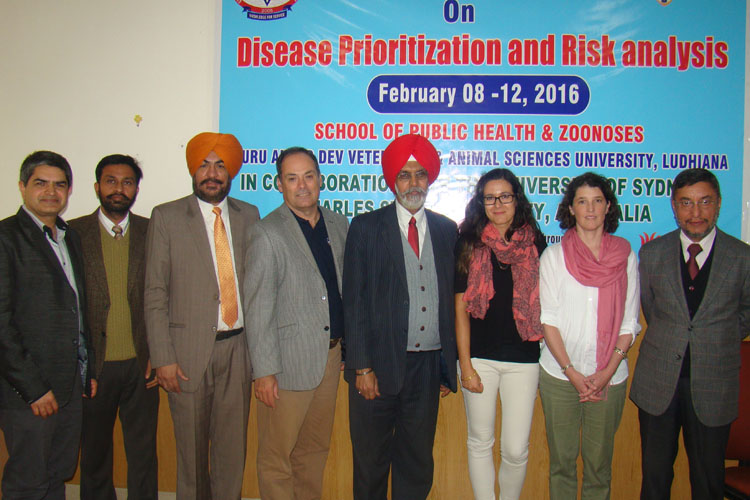 of the workshop. She said that although the techniques discussed in the workshop were very advanced and quite complex, the participants worked hard to follow the concepts. Participants were divided into four groups and each group successfully prioritised diseases and conducted risk analyses for their respective scenario by the end of the workshop.
of the workshop. She said that although the techniques discussed in the workshop were very advanced and quite complex, the participants worked hard to follow the concepts. Participants were divided into four groups and each group successfully prioritised diseases and conducted risk analyses for their respective scenario by the end of the workshop.
The workshop was supported by the Australian Government through the Australia-India Council of the Department of Foreign Affairs and Trade. Dr. BS Gill, Associate Dean (Research), University of Saskatchewan, Canada and Dr. MS Oberoi, FAO consultant congratulated the School of Public Health & Zoonoses for organising this workshop.
